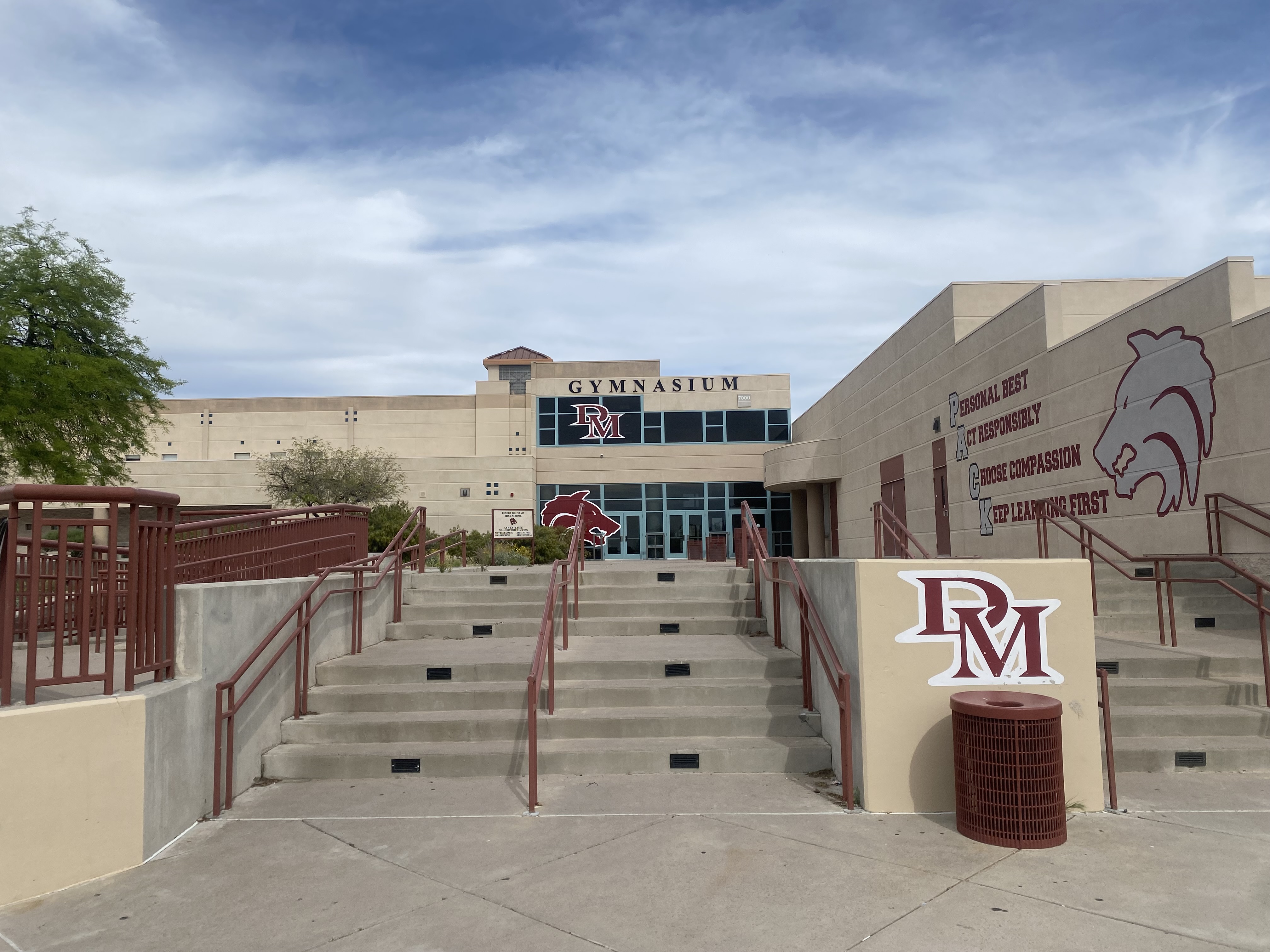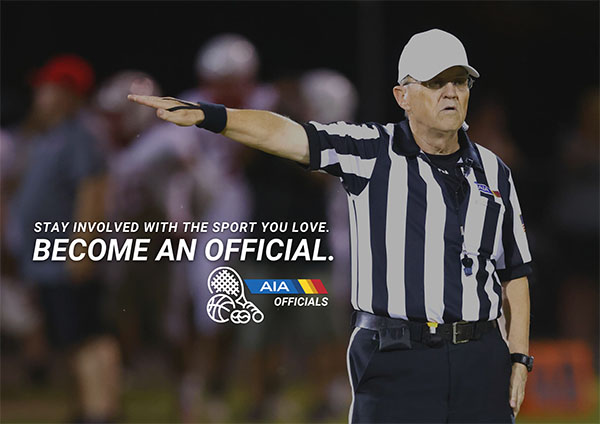The pros and cons of being a multi-sport athlete
April 30, 2024 by Quinton Pressley, Arizona State University

Quinton Pressley is an ASU Cronkite School of Journalism student assigned to cover Desert Mountain High School for AZPreps365.com.
Athletics are imperative for a child’s growth. Not only do sports provide health benefits, but they improve social skills and develop lifelong friendships.
The best thing about sports is the plethora of options people have to choose from. From the hardwood, to the turf, and even the sand, people have an abundance of options to enjoy.
High School sports give opportunity to those who have already found their niche and to those who’ve never stepped foot in a stadium. However, for those who have picked up more than one sport along their journey, their lifestyle is usually more complicated.
Desert Mountain High School’s athletic program has its good share of multisport athletes who all have different experiences. In a new era of sports, being a ‘swiss army knife’ athlete is much different than it was years ago.
Baseball head coach Ryan Dyer has been around the block for a while now and he’s seen the athletic scene change drastically. He thinks the age of the dual-sport athlete slowly has trickled down year after year.
“Over the past many years it's diminished, right when I first started coaching it was a very common thing, the last five to eight years kids are becoming more specialized,” said Dyer.
This slow extinction of the multisport athlete is due to increase in ‘club culture’ in Dyer’s opinion.
‘Fall ball,’ ‘AAU basketball,’ and other year long commitments enforce a mindset that, if athletes are not doing a sport year round, they’re bound to be passed up by “specialized athletes.”
Dyer’s team has a couple multisport athletes and some who have had to give up their second sport for various reasons. Most reasons involved turning their focus to a singular sport for college and so on.
Third-baseman Kyle Pettigrew, once a multisport athlete, gave up on basketball and soccer to solely put his efforts toward the diamond.
“I played basketball, football, soccer, probably basketball was my favorite one,” said Pettigrew. “Stopped playing basketball my freshman year and that’s sort of one of my biggest regrets.”
Although his experience as a multisport athlete came to a quick end, he still believes that being a multisport athlete is a life changing decision.
“I think people should play as many sports as they can for as long as they can, it just makes you a better athlete, it’s fun, it’s good for you,” said Pettigrew. “If I could go back and do it again, I would try to make it work as long as I could and if it doesn’t work, it doesn’t work.”
Pettigrew’s dedication towards baseball benefited him in the long run, because his junior year he started to gain interest from universities to play for their programs. Eventually he signed with San Diego State last September.
Another multisport athlete on the Desert Mountain baseball team is Alex Weeks. In the fall he’s a four and a half star kicker for the football team, come spring he holds down the mound for the Wolves.
Weeks somehow had time for even more his freshman year, as he played basketball to complete the trifecta of high school sports. He wound up dropping playing on the hardwood soon after that year, because of how time consuming it was.
“It was so fun, but it was so stressful,” said Weeks. “Right when you finish one sport you’re onto the next one and the same after that.”
One thing that doesn’t get talked about enough is that if an athlete gets behind academically during one sport, it may be too much to come back from before their next sport begins. This can ultimately hinder their season and further opportunities to play that sport down the road.
Unlike Weeks and Pettigrew, some athletes do not aspire to play sports at the collegiate level. These kids are more interested in playing for the fun of it. Now saying ‘for fun’ does not mean that they are picking dandelions in the outfield. There are a ton of elite non-collegiate athletes out there. This just means these kids are playing just for their love of the game without a future in the sport.
This scenario fits starting pitcher Alex Coler very well. The multisport phenom wrestles and plays baseball for the Wolves. His philosophy is similar but also different from his collegiate bound teammates, because he plays to compete and enjoy the experience.
“I just play sports, you know I’m not looking to go to college (for sports), I just want to have as many experiences as I can,” said Coler. “Wrestling is one of the best things you can do, it’s hard, no one wants to do it, but it helps you out in every way.”
Coler acknowledges that it can be a ‘struggle sometimes,’ but his unmatched, hardworking attitude allows him to push through at all costs.
Just because Coler is not interested in playing at a collegiate level, does not mean this was all for nothing. Playing multiple sports has taught the senior lessons that he will carry on with him throughout this life.
Similarly to Dyer, head football coach Conrad Hamilton has witnessed the pros and cons of being a multisport athlete. Hamilton has coached at every level and even spent some time in the NFL.
As a coach at the college level, Hamilton was able to give insight on how recruits view multisport prospects.
“They like the dual-sport participation so I’ve never heard anybody talk about another sport getting in the way of their progression as a football player,” said Hamilton.
In fact, Hamilton believes that if you were to pair up two talented athletes side by side, the kid that gets the upper hand is the one who’s playing multiple sports. Sometimes specialized athletes get labeled as athletes who have already peaked. Countless times Hamilton would see specialized athletes skipped over for multisport athletes.
“I would say the kid who’s doing both and is still showing the prowess and being exceptional as an athlete has more upside because he hasn’t peaked, he hasn't reached his full potential,” said Hamilton.
He’s also coaching one of the best football prospects Desert Mountain has seen since Baltimore Ravens’ tight end Mark Andrews, Tony Cumberland. The 6’5 285-pound defensive lineman has been a nightmare matchup day in and day out through his first two years as a Wolf.
Cumberland was a multisport athlete, terrorizing the basketball court in his freshman year before he decided to hang it up due to personal reasons.
“He came in right away, he plays varsity football as a freshman, he moved in when he was fourteen years old … we go deep into the playoffs … he was just in eighth grade the year before,” said Hamilton. “His body’s tired …our season ends in semi-finals, basketball season’s already started, he doesn’t have time to recuperate … he’s starting and now he’s playing for a really good semi-final basketball team.”
These testimonies were firsthand experiences from kids who’ve been there and coaches who’ve seen it firsthand. There has been some research previously done on this topic and it favors multisport athletes fairly well.
According to Dr. Neeru Jayanthi of Loyola University, kids who are specialized athletes from the ages 6-12 have all shared at least one of these side effects: burnout, high stress, and recurring chronic injuries due to less developed areas of the body.
This study shows that it is imperative for kids to not follow the club culture early on and experience a multitude of sports. However, once kids finish puberty it’s a different story.
“Sport specialization is now believed to be most beneficial after puberty, around ages 15 and 16. By this time the risks are minimal and the athlete is more likely to achieve long-term, higher level success,” said Cierra Washington (ATC).
At the end of the day it depends on the athlete and it’s up to them what route they want to take.
“There’s definitely an argument, on the other side, to not specialize, but at the end of the day it’s a family's decision and each player is unique,” said Dyer.


